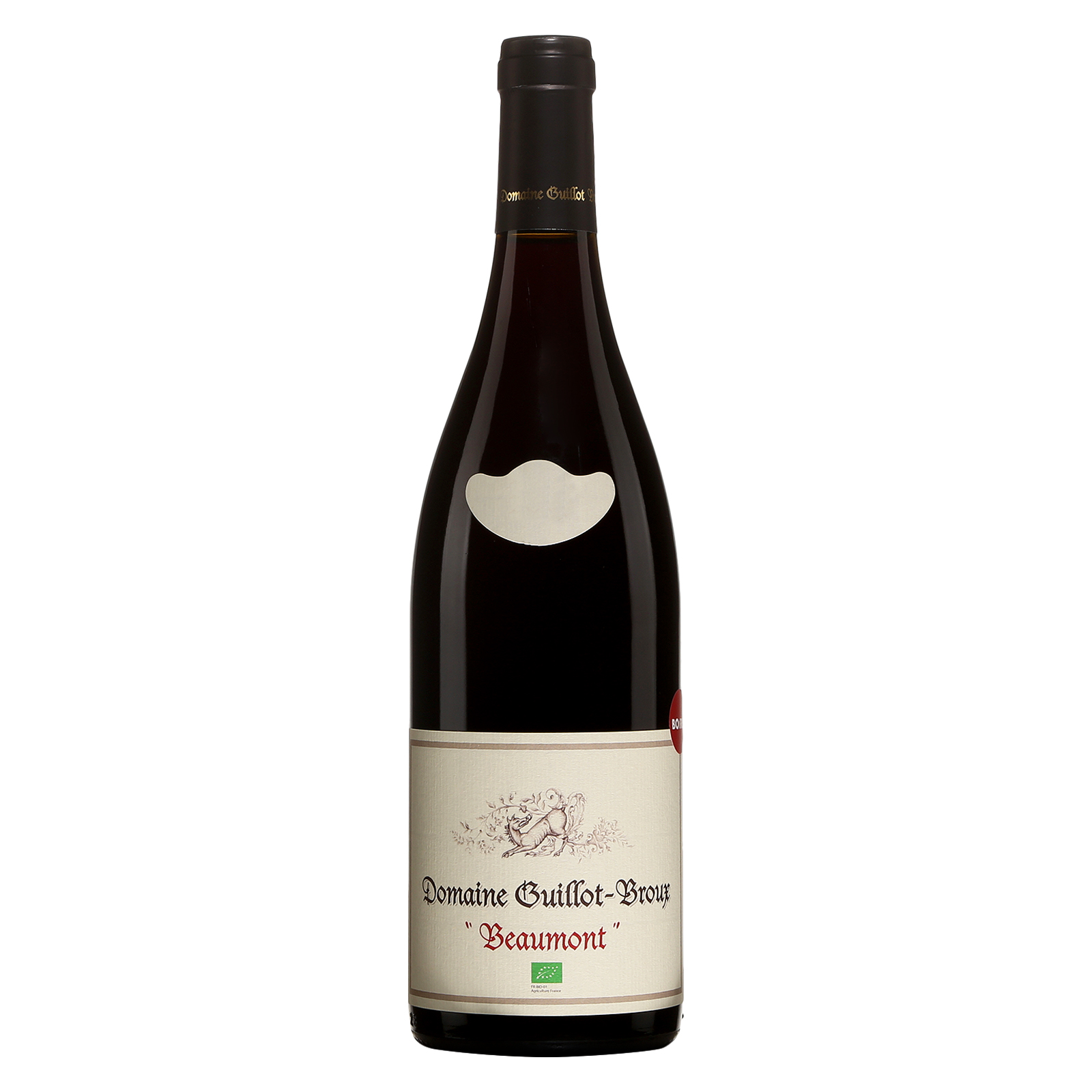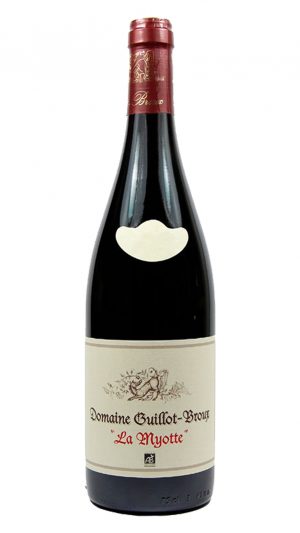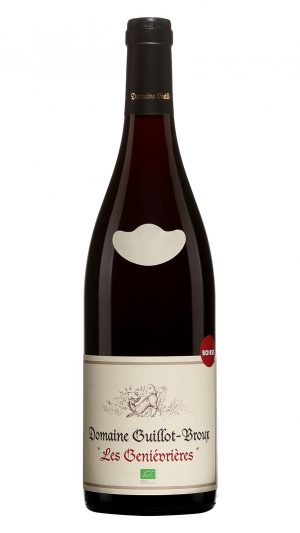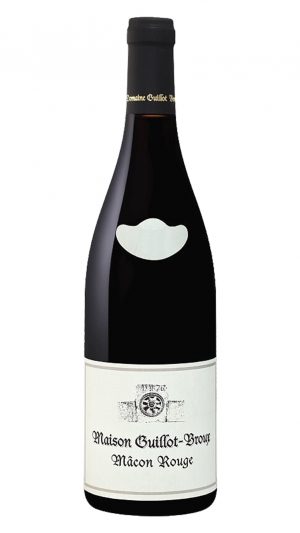Domaine Guillot Broux Beaumont 2018
Type: Red
Country: France
Region: Burgundy, Macon
Grape Variety: 100% Pinot Noir
Viticulture: Certified Organic
Climate: Mediterranean-influenced climate. Warmer with lower rainfall
Terroir: Vines grow on marly limestone (fossils) from the Upper Bathonian
Winemaking: Whole bunches in small containers (50hl) for maceration and alcoholic fermentation which can vary from 6 to 30 days. Traditional foot pegging or freelancing once or twice a day. Aged for 11 months in oak barrels
Color: Ruby with light garnet reflections
Nose: Aromas of raspberries, Griotte cherries, rose petals and subtle spices
Palate: Medium to full-bodied, deep and satiny, it’s tightly wound and precise, with tangy acids and beautifully refined tannins, concluding with a site-typical mineral finish
About the Winery:
Growing up among his family’s vineyards, Jean-Gérard Guillot was inspired by the diversity of terroir in the Mâcon and decided that winemaking would be his life’s path. Seeking to gain different perspectives, he worked for several years at Domaine de la Chanal in Brouilly and Domaine Bernard Michelot in Meursault. Upon returning to the Mâcon, he was ready to establish his estate and founded Domaine Guillot-Broux in 1978 with his wife Jacqueline (Broux is her maiden name). He attentively tended the property until his passing in 2008, and his sons Emmanuel and Patrice carried on the legacy that Jean-Gérard established.
The Guillot family has deep roots in organic winemaking. Emmanuel and Patrice’s grandparents, Pierre and Jeannine Guillot, started the first organic vineyard in Burgundy in 1954. This was practically unheard of at the time and required extensive research and consultation. They stuck to their convictions and successfully began making organic wines. Respect for the land is paramount, carried through successive generations until today. Domaine Guillot-Broux became certified organic in 1991. They use natural methods of pest control and fertilizers, allowing the vines to absorb all the elements they need to be healthy and balanced.
High-density planting means that the vines have fewer grape clusters per plant, concentrating the juice in each grape. The pruning methods (Guyot Simple for the whites; Cordon de Royat for the reds) also help reach this goal. Harvest is by hand, and the grapes are sorted in the vineyard before being moved to the winery.
In addition to practising organic viticulture since 1954, both Emmanuel and Patrice have also perfected the craft of producing wines from single vineyards. The estate takes advantage of the Mâconnais terroir. With 17 hectares of vines situated in the three villages of Cruzille, Grévilly, and Chardonnay, the production is divided into two appellations – Mâcon-Cruzille and Mâcon-Chardonnay. Most of the vineyards are on east-facing slopes on clay-limestone soil, and varied geologies give rise to different terroirs, resulting in strikingly different wines. Even though they are not classified as 1er Cru, they are treated as such, advancing the idea of authentic, terroir-driven wines. The names of those sites are an ode to their northern neighbours – Combettes, Perrieres, Le Clos, Genievrieres, and Beaumont. Each plot is vinified separately, using the methods best adapted to the grape variety, the soil, the vintage, and the age of the vines. The best single vineyards are bottled separately, and if the vintage is not exceptional, the single vineyards are blended into entry-level wines. All fermentation is with native yeast, and the use of sulfites is kept to a minimum.




